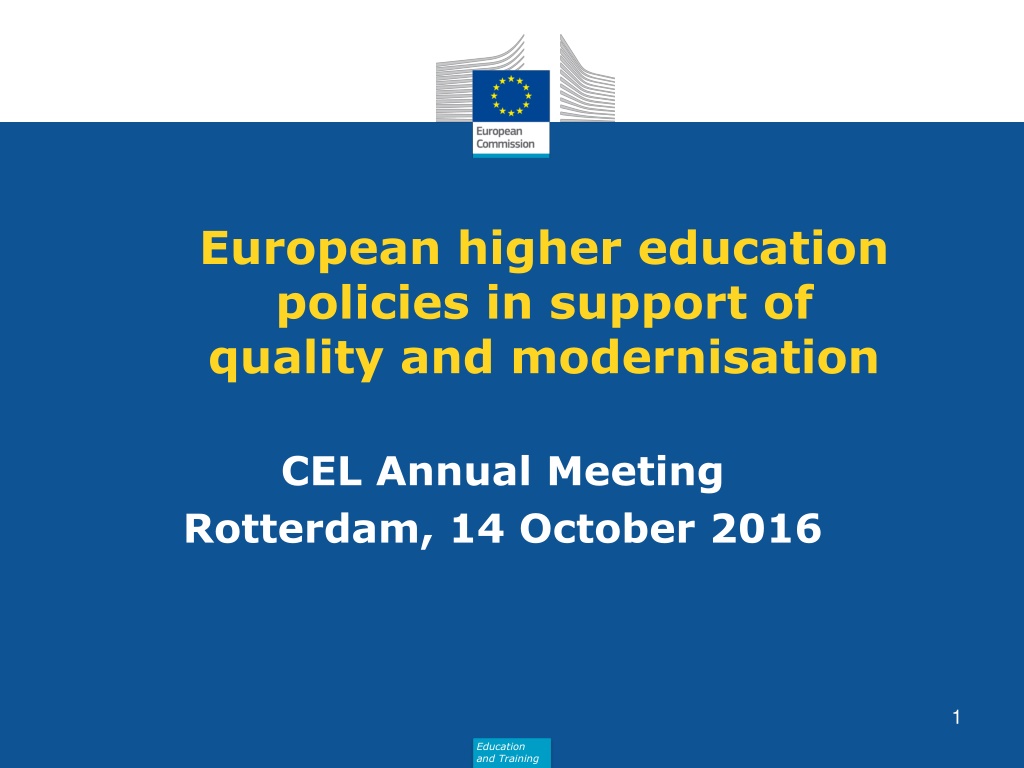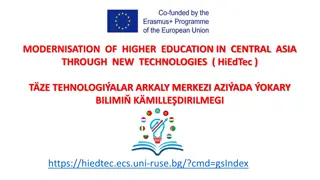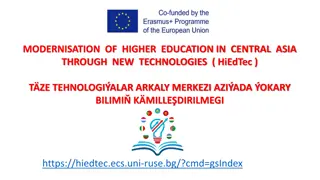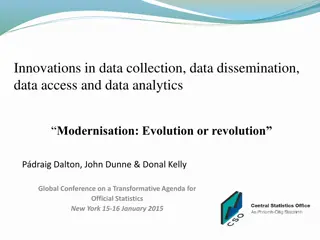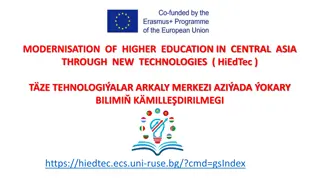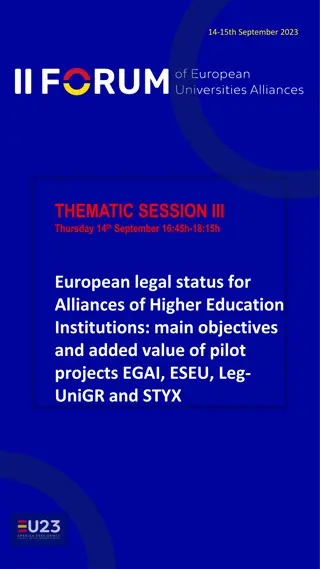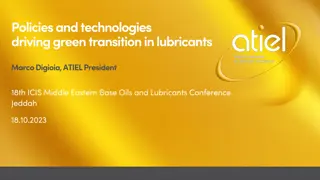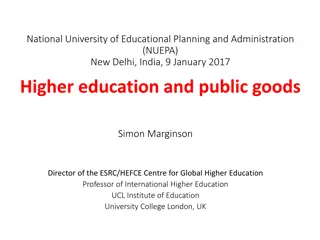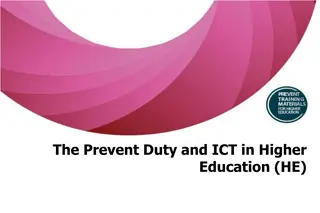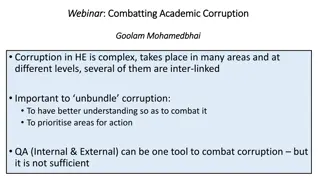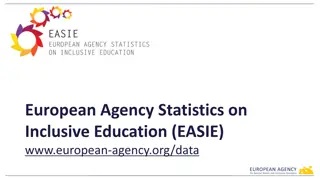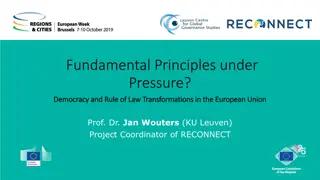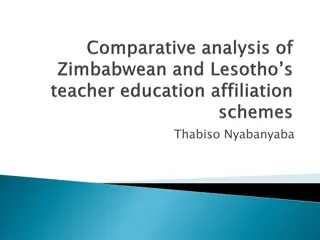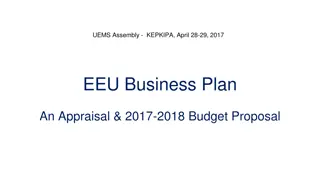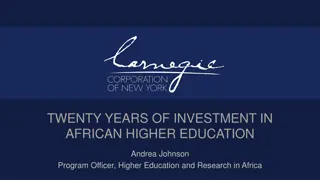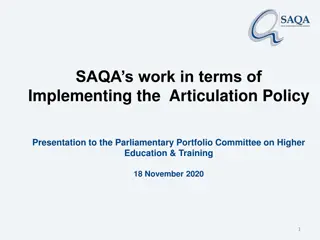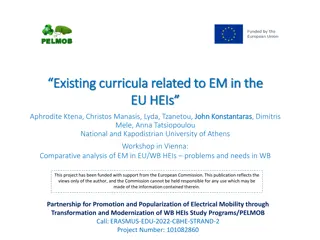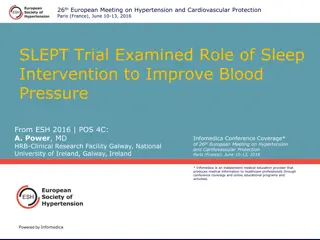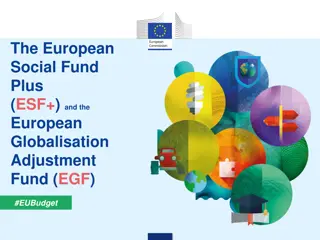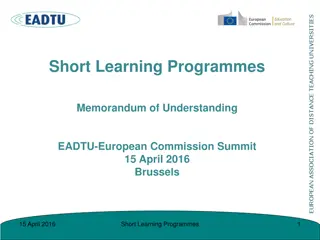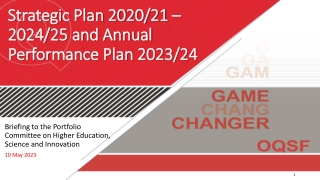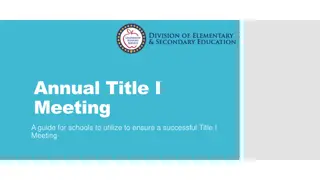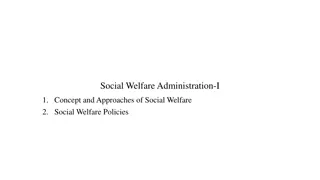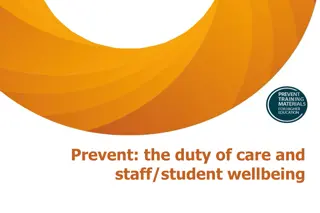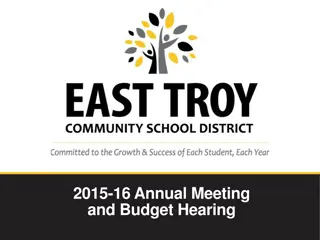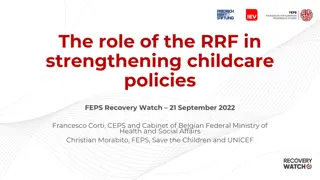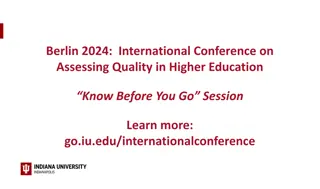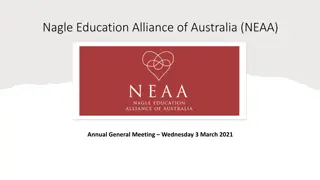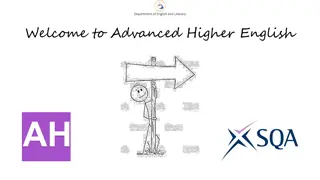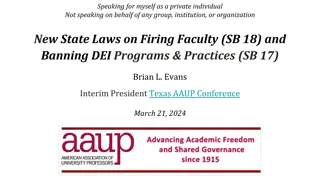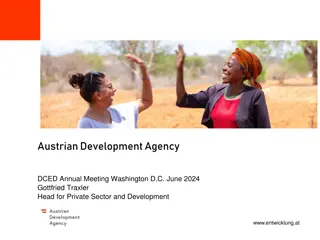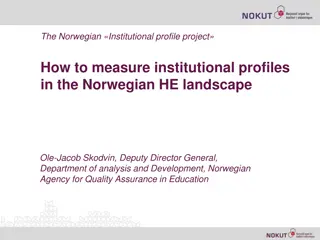European Higher Education Policies for Quality and Modernisation in Annual Meeting
European higher education policies focus on quality and modernisation, with evidence-based agenda setting, policy cooperation, funding support, and stakeholder consultations driving progress. Responses to consultations and questionnaires show diverse engagement, while targeted calls for papers receive participation from government authorities and stakeholders.
Download Presentation

Please find below an Image/Link to download the presentation.
The content on the website is provided AS IS for your information and personal use only. It may not be sold, licensed, or shared on other websites without obtaining consent from the author. Download presentation by click this link. If you encounter any issues during the download, it is possible that the publisher has removed the file from their server.
E N D
Presentation Transcript
European higher education policies in support of quality and modernisation CEL Annual Meeting Rotterdam, 14 October 2016 1 Education and Training
The EU's role in higher education Modernisation agenda 1. Evidence-based agenda setting: pinpointing problems and effective solutions Participation in Bologna Process Studies, analysis, data 2. Policy cooperation and support: peer learning, review and counselling involving governments and institutions "To support the action of Member States" (art. 165) ET 2020 working group, DG HE Individual mobility actions (KA 1) Cooperation projects (KA 2) Erasmus+ 3. Programme funding to individuals and organisations Horizon 2020 (researchers, research and innovation) Other support for policy reform (KA 3) European Structural and Investment Funds (ESF) 2 Education and Training
Consultation on agenda for modernisation of higher education An open online questionnaire on the EUROPA website A targeted request for "position papers" to DGs and European stakeholders Feedback gathered through meetings with Member States and stakeholders 3 Education and Training
Response to online questionnaire Overview of 1,005 Individual respondents Overview of 480 Institutional respondents I am a recent graduate from higher education (graduated in last five years) I am a student in higher education A higher education or research institution (or representative body thereof) A non-governmental organisation 181521 43 77 25 I am an interested citizen 232 A public administration 34 29 603 I employ recent graduates A social partner organisation 338 42 8 I work in an educational institution A student union or other student representative organisation Other An educational establishment outside the HE sector Other 4 Education and Training
Response to online questionnaire 300 250 200 176 150 167 100 50 58 50 65 59 37 3931 26 3928 67 7 4832 2323 32 15 28 1831 17 202910 5 28 9 13 12 13 5 8 23 6 20 16 21 4 12 7 2 6 2 6 9 9 2 4 8 8 8 7 6 6 5 5 2 1 4 3 2 2 0 1 As a representative of an organisation As an individual 5 Education and Training
Response to targeted call for papers 30 from government authorities 19 from European and national stakeholders 6 Education and Training
Key questions in consultation 1. What are the challenges facing HE? 2. What should be the priorities for change? In teaching and learning In (regional) innovation and outreach In research and its links 3. What should the EU do to help? 7 Education and Training
Main challenges facing HE Contextual drivers: globalisation + digitalisation Employment, unemployment, mismatch Dealing with diverse + new population groups Innovation potential of HE under-exploited Technology under-exploited within HE Challenging funding conditions 8 Education and Training
Looking specifically at: TEACHING AND LEARNING 9 Education and Training
Higher education and labour market? 'There is a good match between the supply of higher education graduates and the knowledge and skills the economy needs' 100% 90% 80% 70% 60% No opinion Disagree strongly 50% Disagree to some extent 40% Agree to some extent 30% Agree strongly 20% 10% 0% HEI representative HEI employee Other stakeholders Student or recent graduate 10 Education and Training
Transferable skills? 'Higher education courses are effective at helping students to develop "soft skills" like communication, problem-solving and working in teams' 100% 90% 80% No opinion 70% Disagree to some extent 60% 50% Disagree strongly 40% Agree to some extent 30% Agree strongly 20% 10% 0% HEI Representative HEI Employee Student or recent graduate Other stakeholders 11 Education and Training
HE and civic engagement? 'Higher education courses help prepare students to contribute actively to society' 100% 90% 80% No opinion 70% Disagree to some extent 60% Disagree strongly 50% Agree to some extent 40% 30% Agree strongly 20% 10% 0% HEI Representative HEI Employee Other stakeholders Student or recent graduate 12 Education and Training
Priorities: teaching and learning Responding to growing need for highly qualified people (widening access) Responding to demand for "Transversal" skills as well as in-depth knowledge Responding to need for ICT specialists and digital literacy for all Key tools: Diversity of programmes; better guidance for students; support for teachers; cooperation across boundaries; mobility; flexible entry routes and programme types 13 Education and Training
Looking specifically at: INNOVATION 14 Education and Training
Creativity and innovation in HE? "Higher education courses encourage students to be creative and innovative" 100% 90% 80% No opinion 70% Disagree strongly 60% Disagree to some extent 50% Agree to some extent 40% Agree strongly 30% 20% 10% 0% HEI representative HEI employee Student or recent graduate Other stakeholders 15 Education and Training
HEIs contribution to innovation? "Higher education institutions play a strong role in contributing to innovation at regional and national level" 100% 90% 80% 70% No opinion Disagree strongly 60% Disagree to some extent 50% Agree to some extent 40% Agree strongly 30% 20% 10% 0% HEI representative HEI employee Student or recent graduate Other stakeholders 16 Education and Training
Priorities: (regional) innovation Create environments where students encouraged to be creative and entrepreneurial Overcoming challenges to translating this ambition into reality in existing higher education structures Increasing cooperation between higher education and business and other outside organisations 17 Education and Training
Looking specifically at: RESEACH AND ITS INTERACTION WITH TEACHING & INNOVATION 18 Education and Training
Supporting researchers? "Researchers receive the support that they need from their institutions to reach their potential " 100% 90% 80% No opinion 70% Disagree strongly 60% Disagree to some extent 50% 40% Agree to some extent 30% Agree strongly 20% 10% 0% HEI representative HEI employee Other stakeholders Student or recent graduate 19 Education and Training
Inter-disciplinary research? "The value of inter-disciplinary research is appropriately recognised and rewarded" 100% 90% No opinion 80% 70% Disagree strongly 60% Disagree to some extent 50% Agree to some extent 40% Agree strongly 30% 20% 10% 0% HEI representative HEI employee Student or recent graduate Other stakeholders 20 Education and Training
Priorities: research and links Deliver effective doctoral and post-doctoral training relevant for careers outside of academia Foster inquiring mind-sets more generally including in schools Achieve a better interaction between research and teaching on the ground and in the frameworks that govern these two areas of HE activity 21 Education and Training
EU added value Broad support + some specific suggestions for: More / better development + sharing of comparable information and evidence Cooperation and peer exchange between governments Support for cooperation between HEIs, employers and others Calls for additional mobility of students, staff and researchers Better academic recognition 22 Education and Training
A renewed modernisation agenda Helping students get the right knowledge and skills Making teaching and research work better together Ensuring higher education institutions contribute to regional innovation
Higher education opportunities for refugees: DG EAC initiatives
Information sharing Funding: Erasmus+ and MSCA Academic recognition
Information sharing General website:ec.europa.eu/education/ Initiatives for refugees in higher education: ec.europa.eu/education/policy/migration/higher- education-refugees_en.htm Contact:eac-higher-education-for-refugees@ec.europa.eu
Erasmus+ 2016 13 million to upscale existing initiatives promoting social inclusion, key action 3 400m for social inclusion: strategic partnerships, key action 2
Addresses and Links Report on modernisation consultation http://eur- lex.europa.eu/resource.html?uri=cellar:cd0fa1ca- 2ee9-11e6-b497- 01aa75ed71a1.0001.02/DOC_2&format=PDF Refugees eac-higher-education-for-refugees@ec.europa.eu http://ec.europa.eu/education/policy/migration/hig her-education-refugees_en.htm
Thank you! Questions? julie.anderson@ec.europa.eu
